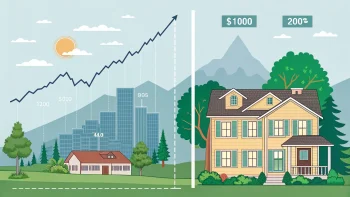You’ve done the work and received acknowledgment so you send your invoice. And, then you wait, and you wait. The mailbox just has ads and bills or your own personal bank or PayPal balance still doesn’t show any plus action. When you reach out to your clients, all you get is a lot of crickets.
Your emotions run the gamut from concern they didn’t like your work – to anger about the lack of respect for your time and talent, especially on those assignments where you dropped everything to do a rush project, and now you feel a little awkward. But, you are running a business and that cash flow is very necessary to keep the lights on and the roof over your head. Sometimes you may wish you could run to the credit bureau, but luckily there are plenty of other ways to get the client from crickets, to compensating.
In this post we teach you what actions to take when a Client hasn’t paid you what you are owed. Luckily there are plenty of ways get paid. Here they are…
Payment Reminder Action Plan
Rather than stewing about it, here are some actions you can take when that client hasn’t paid you:
- If the agreed upon time for payment has passed (hopefully you created an agreement upfront with these terms) by a few days or a week, it’s a good time to send a polite follow-up reminder just checking that they received your invoice. It may be that there was a typo in the email address, it went to their spam box, it got lost in snail mail (if you still mail your invoices) or some other technical glitch may have caused the invoice to be lost in an IBH (Internet Black Hole). If they actually did receive it, this is a subtle way that you would like to get paid without coming out and saying, “Show me the money!”
- When more time passes and you realize it’s time for another invoice but the other has yet to be paid, now you can send them a new and improved invoice that has the new amount, the past due amount, and the addition of a one to two percent fee on the past due amount (Another reason to have an agreement in place so they would already know this additional charge is coming in response to their non-payment). Generally, these little suggestions get the message across and a client quickly changes their behavior.
- Personal contact, retaining that outwardly professional and calm exterior, you can call or visit the client to find out if there is something that you can do to help them facilitate payment. Be sure to get a specific date on when you should expect your payment.
- If further time goes by and you have not received payment, it may be the time to switch gears and focus on those clients that are paying and essentially boycott the client who has perhaps decided not pay you yet.
- Continue to contact your client perhaps more frequently but make sure to keep out the attitude. Keep calm and carry on with those reminders that include regularly refreshed invoices that highlight the growing late fees.
- You may want to consider a certified letter. This is not necessary the magic elixir for payment because sometimes clients then disappear and still skirt their responsibility. Some even declare bankruptcy and leave you with no chance of getting paid.
Lessons Learned
Whether you finally get paid at any point in this reminder action plan or it turns out that you have to write the invoice off as unpaid, there are lessons to be learned with these types of experiences:
- Do additional research on a client prior to working with them, including asking for references as they may alert you to a particular issue related to slow or non-existent payments.
- Discuss all expectations with your client before starting any work.
- Create a detailed client agreement that outlines all payment terms, late fees, and actions taken when payments are delayed or not made.
- Use online invoicing tools to facilitate payment for your client, and invoicing for you, including professional custom invoices that can be emailed to client with a link to a payment portal of their choice, recurring invoice delivery, and automatic payment reminders and acknowledgements. The easier you make it for them, the more likely they will be to just get you paid.
With clear expectations in writing and your client provided with many easy options as ways to pay you – any effort or frustration can then be avoided and a beneficial long-term working relationship began, enhanced and maintained.
















